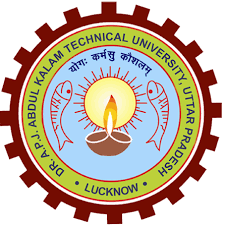The Ph.D. in Energy and Power Engineering program covers topics in physics, chemistry, economics, and environmental protection. The degree focuses on the design, production, and distribution of energy facilities. Additionally, it focuses on developing alternative energy technologies. Typically, a Ph.D. program lasts three years, with one semester of additional study and two and a half years for dissertation work. The doctorate program varies in length, but it typically consists of one thesis and five research projects.
Ph.D. in Energy and Power Engineering students study the production, distribution, and use of energy. They work with fossil fuels, renewable energies, and environmental protection. They focus on developing alternative energy technologies and designing energy facilities. A typical Ph.D. program lasts about three years, which includes one semester of additional study and a dissertation. The course of study involves the research of energy resources, and the design of the machinery to generate electricity. A Ph.D. in Energy and/or Power Engineering is also an option for students who wish to work in academia or business.
Ph.D. in Power Engineering Eligibility
Candidates who want to take admission in Ph.D. must have a post-graduate degree in Ph.D. in Power Engineering and its relevant discipline with at least 55% marks from a recognized university and must have passed the national level entrance examination or university level entrance examination. National level entrance exams like UGC NET / UGC CSIR NET / GATE / SLET or University entrance exams consist of written tests and personal interviews.
The Benefits of a Ph.D. in Power Engineering
A Ph.D. in Power Engineering can be very useful for students who want to explore renewable energy technologies. This degree can help them find solutions to power networks of the future, industrial needs, and global problems. A Ph.D. in Electrical and Thermal Energy Engineering can also help them to develop new products and technologies in this area. A Ph.D. in this field is the highest level of education in Norway. It can be a great benefit for those who wish to work in an industry related to this field.
The benefits of a Ph.D. in Power Engineering are many. First of all, a Ph.D. can be very useful for people who are already working in the industry. A Ph.D. in this field will open new doors and help them advance their careers. A Ph.D. in this field can be very beneficial to people who want to work in the power industry. In addition, you can get jobs in industries that require the use of electricity. If you want to study electric and thermal power engineering, then a Ph.D. is your best choice.
A Ph.D. in this field allows you to pursue research that combines both fundamental and applied science. The power industry requires highly trained and skilled workers. A Ph.D. in this field will help you find a job in the field. It will allow you to advance your knowledge and make a big impact on the future. The demand for electricity is growing by the day. But how can you take advantage of the opportunity to advance your career and make a difference?
The Career and Job Opportunities of a Ph.D. in Power Engineering
The Ph.D. in Power Engineering is a highly sought-after degree. Graduates can apply their knowledge to a variety of fields, from industrial and public sector management to renewable energy resources. These graduates are well-qualified for research careers in the field, and their graduate degrees can help them secure high-paying positions. Despite the high demand for these engineers, many candidates choose to remain in academia for a longer period.
The Ph.D. in Energy and Power Engineering is an advanced degree that focuses on the science and engineering of energy. In addition to studying electricity and its conversion, it also focuses on chemistry, physics, and economics. It is a multidisciplinary discipline that deals with the design and optimization of energy facilities. A Ph.D. in this field may lead to a position in the energy sector, designing alternative energy technologies and analyzing and auditing the use of energy resources. The Ph.D. program is generally three years long and includes one additional semester of study and two and a half years of dissertation work.
With an MS in Energy and Power Engineering, graduates can choose a number of rewarding careers, including research and development, environmental protection, and consulting. A Ph.D. in Energy and Electrical Engineering (EE) program is designed to provide the education and training needed to succeed in a variety of fields, including energy and power generation. This field has a high demand for engineers, and graduates with the degree can help to meet the need.
The Future Scope of a Ph.D. in Power Engineering
Students who earn a Ph.D. in Power Engineering are well-equipped to analyze power requirements, design solutions, and implement new technology. They can work in the fields of energy planning, conservation, and security. The cost of a Ph.D. degree in this field varies depending on the program and its location. The coursework usually takes about three years, and the dissertation may take another year or more.
Graduates with a Ph.D. in Electrical Engineering can become professors, research fellows, and senior engineers in the electrical, mechanical, and electrical fields. They will also be able to enter government and industry positions, as well as academia. The average annual salary for an Electrical Engineering Ph.D. graduate is four to twenty thousand dollars. The career outlook for graduates is promising, and the job market is growing rapidly
Ph.D. Research Programme duration
The Ph.D. in Power Engineering course is a minimum of 3 years and a maximum of 5 years in duration. This depends on the university offering the course.
Fees for research program for Ph.D. in Power Engineering
The average fee for Ph.D. in Power Engineering degree is between INR 50000 and INR 500000.
 5 Years
5 Years
 PhD
PhD
 Research
Research
















 back
back